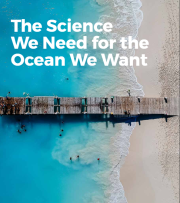A week-long WESTPAC training workshop was held in Phuket, Thailand from 17-21 September 2018, with the participation of more than 30 young researchers, fishery officers and graduate students from six countries in the WESTPAC region.
This training workshop was an intensive high-level training held in the WESTPAC region on carefully defined scientific subjects. In view of a lack of scientific diving trainings and limited research capacity for benthic dinoflagellates in the WESTPAC countries, this training workshop aims to train young scientists and the government authorities in the region with the standard protocols for introductory scientific diving, underwater sampling, sample processing, culturing and identification of marine benthic dinoflagellates.
Trainees and invited lecturers were grouped into two concurrent training programmes, respectively on 1) Introductory scientific diving, and 2) sample processing, identification and culturing techniques for benthic dinoflagellates.
The scientific diving programme was led by Dr Leo Lai CHAN (City University of Hong Kong), Lawrence Long CHAN and their scientific diving team from the Sea Dweller Underwater Academy consisting of Ting HAN, Wing Kin FU, Ki Chun YIP and Walter Ernesto DELLISANTI. This programme was conducted through lectures, confined pool and open water environment training. Lectures were delivered on the background and history of scientific diving, scientific diving training and its applications in different underwater scientific research. Students were trained not only with basic scientific diving techniques such as advance kicking, buoyancy control etc., but also methodologies for collecting biologically relevant data including the use of transect, quadrats, sample bottles and bags, etc. Demonstration was also conducted how to use various scientific equipment including ‘Coral Watch’, ‘Coral Finder”, Coral in Situ Metabolism and Energetics (CISME), Benthic and Epiphytic Toxic Algae (BETA) sampler etc. At the end of the training workshop, all students become aware that scientific diving system serves a two-fold purpose: (1) a research support function that assists the diving scientist with specialized underwater equipment, advice, and diver support, and most importantly (2) a risk management function that protects the safety and health of the individual scientist, and the employing organization from excess liability exposure. “The scientific diving training surely provided me with profound insights on what skills we should have and how to achieve scientific missions effectively,” said Lalita Putchim, a researcher from Phuket Marine Biological Center, Thailand.
Another group of trainees focused mainly on marine benthic dinoflagellates, its sampling methods, identification, cell isolation techniques, culture establishment and maintenance. A team of invited lecturers consisting of Drs Po Teen LIM (University of Malaya), Pengbin Wang & Douding Lu (Second Institute of Oceanography, State Oceanic Administration of China). This session was conducted through a series of lectures, and hands-on exercise on the application of the single-cell isolation by micropipetting technique, culture media selection and culture preparations. Lim delivered lectures on an overview of HABs in the WESTPAC region, recent emerging HAB related issues and current knowledge gaps in HABs, focusing on ciguatera fish poisoning and the benthic dinoflagellates. He also shared the sampling methods using artificial substrates as well as his research findings in Malaysian waters. Wang demonstrated the techniques of cell isolation, culture establishment, medium preparation and culture maintenance. Lu, while lecturing on taxonomy of benthic dinoflagellates, emphasized the need to obtain not only morphological data but also molecular evidence to support species delineation.
All participants practiced observing and isolating dinoflagellate cells from the natural substrate samples collected from the nearby shore and coral reefs. Several genera of harmful dinoflagellates were identified and isolated for culture establishment, including Ostreopsis, Prorocentrum, Coolia and Amphidinium. Participants also learned the techniques of medium preparation, setting up culture collection, maintenance and management of culture collection during the practical sessions.
The ensuing plenary discussions culminated in a conclusion that participants from China, Indonesia, Malaysia, Thailand, Philippines, and Vietnam agreed to adopt the Benthic HAB artificial substrate sampling method (Tester et al. 2014, Yong et al. 2018) and committed to carrying out comparative studies at the coral reefs and seaweed beds of the respective countries. Participants expected more workshops on ciguatera fish poisoning and benthic dinoflagellates will be organized in the near future in this region to address the emerging issues in seafood safety.
This event was co-organized by the UNESCO/IOC Sub-Commission for the Western Pacific (WESTPAC) and the Phuket Marine Biological Center (PMBC), with generous financial support of the Thai National Commission for UNESCO, and great technical assistance of the City University of Hong Kong (CityU), Sea Dweller Underwater Academy (SDUA), University of Malaya (UM), and the Second Institute of Oceanography (SIO) of the State Oceanic Administration of China.




